Women Access

How does climate change exacerbate gender inequality in access to resources and decision-making ?
Climate change exacerbates gender inequality by disproportionately affecting women and girls in access to resources and decision-making. Women often have limited access to resources such as water, food, and land due to cultural norms, lack of education, and poverty. They also have limited participation in decision-making processes due to cultural norms and lack of education. To address these issues, it is important to prioritize gender equality in climate change adaptation and mitigation strategies by ensuring that women's voices and experiences are taken into account when making decisions.

How does climate change disproportionately affect women in developing countries ?
Climate change disproportionately affects women in developing countries due to socio-economic factors, cultural norms, and division of labor. Impacts include reproductive health issues, nutritional deficiencies, loss of traditional occupations, increased workload, water scarcity, and energy poverty. Adaptation and mitigation efforts should involve women in decision-making and build their capacities. Gender-sensitive policies and interventions are needed to address these challenges and promote a more equitable future.

What are the challenges faced by women in adapting to climate change ?
Women face unique challenges in adapting to climate change related to their roles as caregivers, farmers, and community members, limited access to resources and decision-making power. Key challenges include limited access to education, financial resources, land and property rights; caregiving responsibilities such as water collection and childcare; limited participation in decision-making processes due to political underrepresentation and cultural norms; and impacts on livelihoods through changes in agriculture, income generation, and migration. Addressing these challenges requires a gender-sensitive approach to climate change adaptation that provides education, improves access to resources, and supports women's roles.
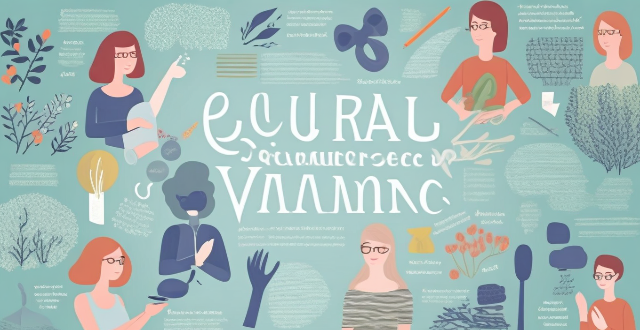
How do cultural factors influence women's access to education ?
The text discusses cultural factors that influence women's access to education, including gender roles, perceptions of capability, social norms, economic priorities, religious teachings, and ethnic customs. These factors can either facilitate or hinder educational opportunities for women, shaping their roles in society and the economy. Addressing these barriers requires a multifaceted approach that includes challenging harmful cultural norms, promoting gender equality, and advocating for policies that support female education.
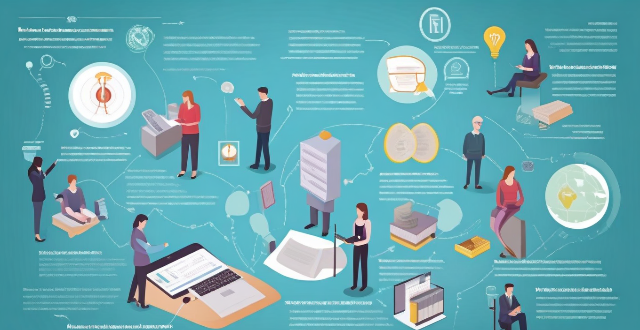
How can we address the intersectionality of climate change and gender inequality ?
Addressing the intersectionality of climate change and gender inequality requires a comprehensive approach that considers both environmental and social dimensions. Key points include recognizing the intersectionality, including women in decision-making processes, promoting gender-sensitive climate policies, supporting women's access to education and empowerment, ensuring access to sustainable energy and resources, addressing gender-based violence, and fostering collaboration and partnerships. By taking these steps, we can work towards a more equitable and sustainable future for all.
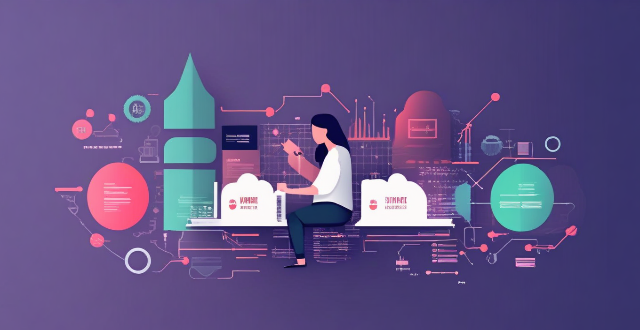
How do women-specific NGOs measure their impact on reducing poverty and inequality ?
This article explores how women-specific NGOs measure their impact on reducing poverty and inequality by focusing on key metrics such as economic empowerment, education and skill development, health and well-being, and gender equality and empowerment. It also highlights successful NGOs like Women's World Banking, Room to Read, and International Planned Parenthood Federation (IPPF) that use data collection tools to track progress towards their goals.
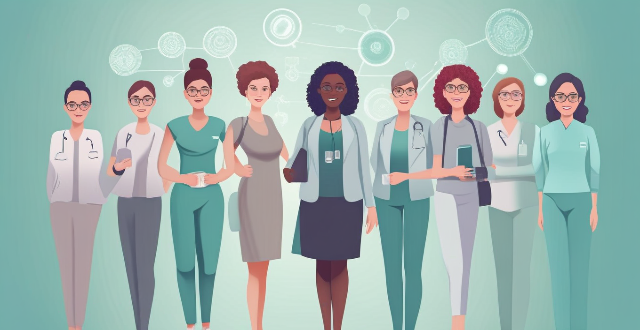
How does scientific literacy among women vary across different countries and cultures ?
This article explores the variations in scientific literacy among women across different countries and cultures. It highlights the factors that influence scientific literacy, including education, socio-economic status, cultural norms, and access to resources. The article also discusses the implications of these variations for society as a whole, such as health outcomes, economic development, and environmental sustainability efforts. Finally, it emphasizes the importance of promoting scientific literacy among women through targeted education programs and initiatives that address the specific challenges faced by women in different cultural contexts.

What steps can women take to build a strong professional network ?
Building a strong professional network is crucial for career growth and advancement. For women, it can be especially important as they often face unique challenges in the workplace. Here are some steps that women can take to build a robust professional network: 1. Attend industry events and conferences. 2. Join professional organizations and associations. 3. Utilize social media and online platforms. 4. Find a mentor or sponsor. 5. Participate in training programs and workshops. 6. Volunteer for committees or boards. 7. Stay in touch with colleagues and alumni.
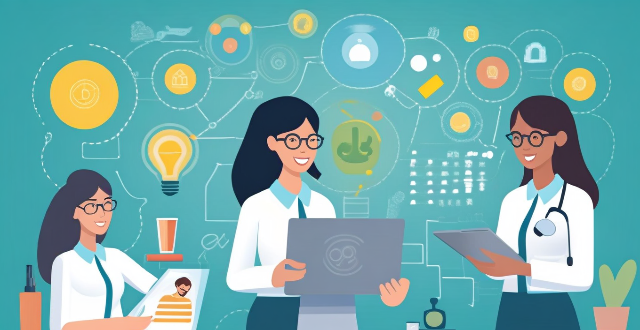
What challenges do women face in achieving scientific literacy, especially in developing countries ?
Scientific literacy is crucial for individuals to understand and make informed decisions about the world around them. However, women in developing countries face numerous challenges in achieving scientific literacy due to various socio-economic and cultural factors. These include a lack of access to education, economic barriers such as poverty and limited job prospects, gender stereotypes and bias in teaching methods, family pressures and responsibilities like child marriage and household chores, inadequate infrastructure, and a technological divide. Overcoming these challenges requires concerted efforts from governments, educational institutions, NGOs, and communities to promote gender equality in science education. By addressing socio-economic barriers, changing cultural perceptions, improving infrastructure, and bridging technology gaps, we can create an environment where women can achieve scientific literacy and contribute fully to the advancement of science worldwide.

What resources are available for women looking to start their own business ?
Starting a business can be challenging, but women can turn their entrepreneurial dreams into reality with the right resources and support. Government programs and grants, non-profit organizations and foundations, online platforms and networks, and educational resources are all available to help women start their own businesses. These resources provide funding opportunities, training programs, networking events, specialized programs for minority and immigrant women, counseling and mentorship opportunities, access to free resources and workshops, and more. By utilizing these resources, women can gain the knowledge, skills, and support needed to successfully start and grow their own businesses.
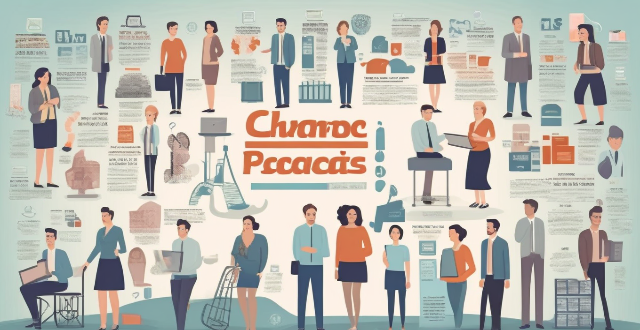
How do climate change impacts differ for men and women in urban vs. rural areas ?
Climate change impacts vary by gender and geography, with urban and rural areas presenting distinct challenges for men and women. Urban men benefit from more job opportunities and adaptation resources, while urban women face vulnerabilities during extreme events, health concerns, and economic disruption. Rural men are often dependent on natural resources for livelihoods and may migrate due to climate change, whereas rural women bear agricultural responsibilities, caregiving roles, and water collection tasks, all of which are affected by climate stressors. Key differences include resource access, infrastructure, livelihood dependencies, and gender roles, with women often bearing a disproportionate burden. Addressing climate change requires recognizing these differences and developing targeted strategies for the most vulnerable populations.

How do cultural differences impact the experiences and opportunities for women around the world ?
Culture plays a significant role in shaping the experiences and opportunities for women around the world. It influences their roles, rights, and responsibilities, often leading to disparities in their access to education, healthcare, economic opportunities, and political representation. In this discussion, we will explore how cultural differences impact women's experiences and opportunities globally. Access to Education: Western cultures generally promote equal access to education for both genders, while traditional societies may prioritize male education over female, limiting women's opportunities. Developed nations offer quality education with diverse subjects including STEM fields, while developing nations often lack resources, resulting in fewer educational options for women. Reproductive Rights: Progressive cultures provide comprehensive reproductive health services, while conservative cultures may restrict access to contraception and safe abortion services. Industrialized countries have advanced medical facilities and prenatal care, while rural areas lack adequate healthcare infrastructure, increasing maternal mortality rates. Workforce Participation: Liberal societies encourage women's participation in various sectors, while patriarchal societies limit women to specific roles, reducing their economic potential. The Global North has legislation promoting wage equality, while the Global South often faces significant gender pay gaps due to cultural norms. Voting Rights: Democratic nations guarantee universal suffrage regardless of gender, while authoritarian regimes may restrict women's right to vote or run for office. Developed nations see an increase in female political leaders, while traditional societies rarely see women in high-level political positions due to cultural barriers. Marriage and Family Life: Western cultures promote marriage based on mutual consent and partnership, while arranged marriage cultures may limit women's choice in spousal selection. Dress Codes and Personal Freedom: Liberal societies allow individual expression through clothing choices, while restrictive cultures impose strict dress codes on women, limiting personal freedom. Addressing these disparities requires global efforts towards promoting gender equality and respecting human rights across all cultures.
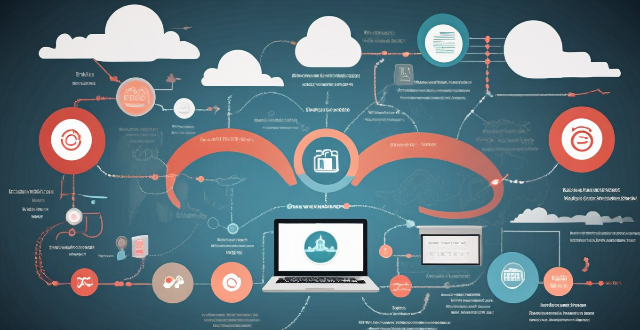
Do unlimited data plans really provide unrestricted internet access ?
Unlimited data plans are marketed as offering unrestricted internet access, but there are often limitations in practice. These include network management practices during peak hours, fair use policies that may reduce speeds for excessive usage, and throttling after reaching certain data thresholds. Additionally, coverage areas and hidden costs can also impact the user experience. It's important to understand the specific terms of your plan before assuming you'll have completely unfettered access.
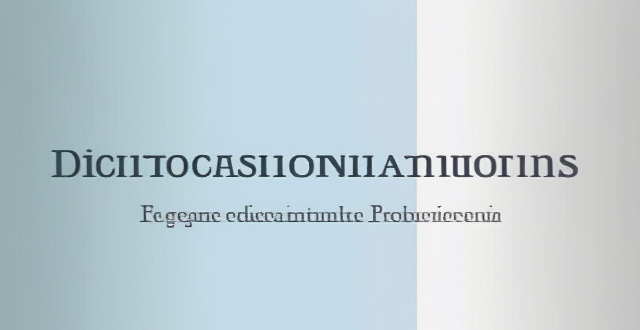
Are there any international laws that protect the rights of women ?
The text discusses international laws and conventions established to protect and promote women's rights, including the Convention on the Elimination of All Forms of Discrimination Against Women (CEDAW), the Inter-American Convention on the Prevention, Punishment and Eradication of Violence Against Women, the Maputo Plan of Action, the European Convention on Human Rights (ECHR), and the Beijing Declaration and Platform for Action. These legal frameworks aim to address issues such as discrimination, violence, gender equality, health care, education, and economic resources. The effectiveness of these laws often depends on national governments' commitment to implementing and enforcing them.

How can we empower women to lead the fight against climate change ?
Empowering women to lead the fight against climate change involves recognizing their unique perspectives, capabilities, and contributions to environmental conservation. This multifaceted approach includes: 1. **Recognizing Gender-Specific Impacts of Climate Change**: - Highlight the disproportionate impact on women through awareness and education campaigns. - Promote gender-sensitive climate policies that address specific needs and challenges faced by women. - Ensure gender-disaggregated data collection for a better understanding of climate impacts. - Support gender analysis in climate research to explore its effects on communities. 2. **Encouraging Women's Participation in Decision-Making**: - Increase representation of women who prioritize climate action in political involvement. - Foster women-led climate initiatives that are designed, implemented, and led by women. - Provide training programs that equip women with necessary skills for leadership roles. - Create networking opportunities for women to connect, share knowledge, and collaborate. 3. **Investing in Women-Centric Infrastructure and Technology**: - Train women in green technologies and renewable energy sectors for sustainable job opportunities. - Offer grants and loans to women entrepreneurs creating eco-friendly businesses. - Develop gender-responsive infrastructure projects like water systems and renewable energy setups. - Support women farmers through education on climate-resilient farming practices and access to resources. 4. **Amplifying Women's Voices in Climate Conversations**: - Ensure fair representation of women's voices in media coverage of climate issues. - Leverage digital platforms to amplify women's messages and campaigns related to climate change. - Support women-led grassroots movements focusing on local environmental issues. - Organize educational workshops in communities, led by women offering unique perspectives. By adopting these strategies, we can empower women, strengthen the fight against climate change with innovative solutions, and foster inclusive leadership.

How can we use sports to promote gender equality and empower women and girls ?
Promoting gender equality and empowering women and girls through sports involves increasing visibility, ensuring fair representation, improving access and inclusivity, providing education and training, implementing policy and legislation, promoting health and wellness, encouraging economic empowerment, engaging the community, and fostering cultural change. These efforts aim to break down barriers, challenge stereotypes, and create opportunities for women and girls to thrive both on and off the field.

What are the benefits of having a higher level of scientific literacy among women ?
The article discusses the advantages of having a higher level of scientific literacy among women. It highlights how it leads to improved health outcomes, economic empowerment, environmental sustainability, social progress, and global impact. Women with strong scientific literacy are more likely to make informed healthcare decisions, pursue careers in STEM fields, engage in environmentally responsible behaviors, challenge traditional gender roles, and contribute to solving global issues. The benefits of enhancing women's scientific literacy are vast and far-reaching, making it a key component of our collective efforts towards creating a more equitable world where everyone has access to quality education and opportunities.
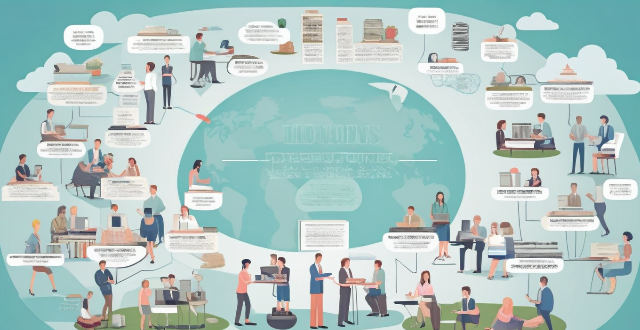
How can women build a strong network in the business community ?
In today's competitive business landscape, building a strong network is crucial for success. For women, it is especially important to cultivate relationships with peers, mentors, and industry leaders. This guide will provide strategies and tips on how women can build a strong network in the business community by attending industry events and conferences, joining professional organizations, utilizing social media, seeking mentorship, and being proactive in maintaining relationships.
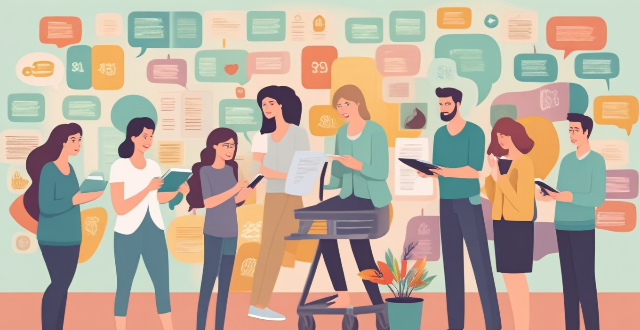
What are some resources available for women looking to advance their careers ?
There are many resources available for women looking to advance their careers. These include professional networking organizations, online courses and certifications, mentorship and coaching programs, workshops and seminars, books and literature, and online communities and forums. By utilizing these resources, women can gain valuable knowledge and skills, make connections with other professionals, and receive guidance and support in their career development.
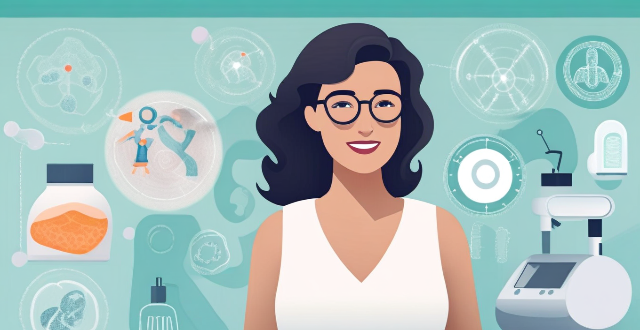
How does scientific literacy among women affect their decision-making abilities in healthcare and environmental issues ?
The level of scientific literacy among women significantly influences their decision-making abilities in healthcare and environmental issues. Scientifically literate women are better equipped to access, understand, and critically evaluate health information, leading to healthier lifestyle choices and more effective communication with healthcare providers. They also show greater awareness of environmental issues and are more likely to adopt sustainable practices, engage in conservation efforts, and advocate for evidence-based policies. Enhancing scientific literacy among women is crucial for empowering them to make well-informed choices that benefit both their own health and the environment.

How does scientific literacy among women influence their career choices in science and technology fields ?
Scientific literacy significantly influences women's career choices in science and technology fields by enhancing opportunities, overcoming barriers, increasing diversity, and improving representation. It enables women to access complex scientific information, develop problem-solving skills, broaden their perspectives, break stereotypes, promote equality, address biases, expand career horizons, encourage mentorship, foster collaboration, challenge underrepresentation, influence policy, and change public perceptions about the suitability of these fields for females.

How can women effectively manage their wealth ?
Managing wealth is crucial for women to achieve financial security. Tips include setting SMART financial goals, creating a budget, building an emergency fund, investing wisely, prioritizing retirement savings, and seeking professional advice. By following these steps, women can effectively manage their wealth and achieve their financial goals.

What are the common fertility issues faced by women ?
Fertility issues can be a sensitive and complex topic for many women. There are several common fertility problems that women may face, which can impact their ability to conceive and carry a pregnancy to term. These include ovulation disorders, endometriosis, uterine fibroids, tubal blockage, and age-related infertility. It's important for women who are struggling with fertility to seek medical advice and explore treatment options that best suit their individual needs and circumstances.

How can we address the stigma surrounding mental health in women ?
Summary: Addressing the stigma surrounding mental health in women requires a comprehensive approach involving education, awareness, and advocacy. Public education campaigns can help demystify mental health, while school programs can teach young girls that it's okay to seek help. Corporate training and media representation can also play a role in changing public perception. Support groups, mental health advocates, government policies, and employer policies can provide support and resources for women struggling with mental health issues. By working together, we can create a society where women feel comfortable discussing their mental health and seeking help without fear of judgment or discrimination.
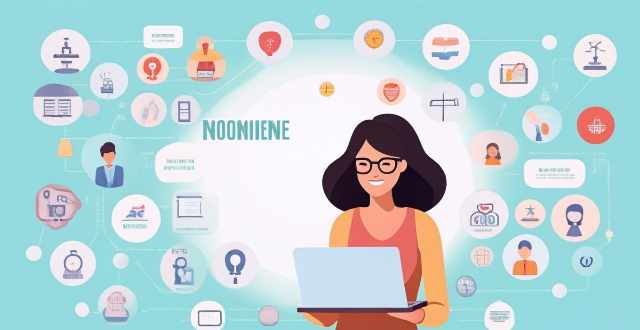
What is the status of women in STEM education and careers ?
The text provides a comprehensive overview of the status of women in STEM education and careers. It outlines key challenges and disparities faced by women at different levels of their academic and professional journeys, from undergraduate education to senior positions in academia and industry. The article also discusses barriers such as bias, stereotyping, workplace culture issues, and limited resources that contribute to these disparities. Initiatives aimed at improving the representation and advancement of women in STEM fields are highlighted, including educational programs, professional development opportunities, and policy changes. Despite progress, the need for continued efforts to achieve gender parity in STEM is emphasized.

How can women ensure they have access to medical care and support in case of illness or injury while traveling ?
How Can Women Ensure They Have Access to Medical Care and Support in Case of Illness or Injury While Traveling? Traveling can be an exciting adventure, but it's important to ensure that you have access to medical care and support in case of illness or injury. Here are some tips for women to ensure they have access to medical care while traveling: 1. Research Before You Go: Before embarking on your journey, research the local healthcare system and facilities. Look for hospitals, clinics, and pharmacies in the area you will be visiting. Make a list of emergency numbers and keep them with you at all times. 2. Get Travel Insurance: Consider purchasing travel insurance that includes medical coverage. This will give you peace of mind knowing that you are covered in case of an unexpected illness or injury. 3. Pack a First Aid Kit: Pack a first aid kit with essential items such as bandages, antiseptic wipes, pain relievers, and any prescription medications you may need. It's also a good idea to bring along copies of your prescriptions in case you need to refill them while traveling. 4. Stay Healthy: Take steps to stay healthy while traveling. Wash your hands frequently, eat nutritious meals, drink plenty of water, and get enough sleep. Avoid risky behaviors such as excessive alcohol consumption or participating in dangerous activities without proper safety gear. 5. Seek Help When Needed: If you do become ill or injured while traveling, don't hesitate to seek medical attention. Many countries have English-speaking doctors and nurses who can provide assistance. If you are unable to communicate effectively with local healthcare providers, consider using translation services or seeking out expatriate communities for support. In conclusion, ensuring access to medical care and support while traveling is crucial for women's health and safety. By doing your research beforehand, getting travel insurance, packing a first aid kit, staying healthy, and seeking help when needed, you can enjoy your travels with peace of mind knowing that you are prepared for any potential emergencies.

How can women protect themselves from gender-based discrimination and harassment ?
Gender-based discrimination and harassment are pervasive issues that women face in various settings, including the workplace, education, and public spaces. To protect themselves, women can take several proactive steps to ensure their safety and well-being, including educating themselves about their rights and forms of harassment, creating a supportive network, taking preventive measures, reporting incidents promptly, seeking legal advice and counseling services when needed, and advocating for change by raising awareness and participating in policy making. By employing these strategies, women can better protect themselves from gender-based discrimination and harassment while also contributing to a broader cultural shift towards equality and respect.
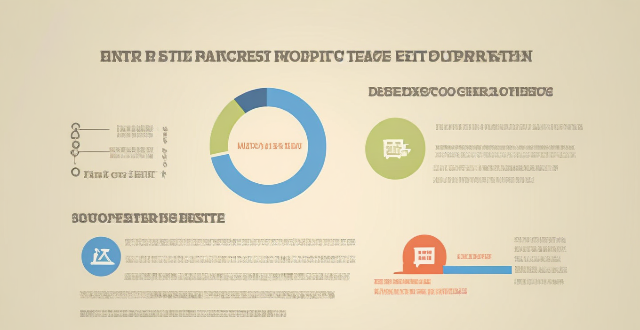
How do I manage my child's Apple ID and restrict their access to certain content ?
This guide provides step-by-step instructions for parents on how to manage their child's Apple ID, set up Family Sharing, and restrict access to certain content using Screen Time and Content & Privacy Restrictions. The goal is to ensure online safety for children by monitoring their activities and limiting their exposure to inappropriate content.

In what ways does education empower women socially and politically ?
Education is crucial for women's empowerment, enabling them to challenge societal norms and contribute more fully to society. It fosters increased awareness, improved socioeconomic status, and enhanced social relationships. Education also leads to greater political participation, policy influence, and promotion of gender equality. Overall, education enriches society by improving the lives of women and contributing to a more equitable world.
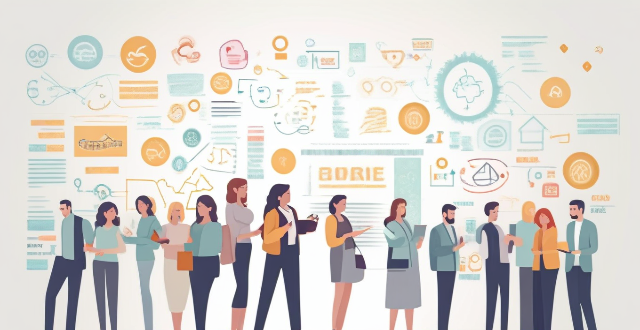
How can women build a diversified portfolio to minimize risks and maximize returns ?
The article provides a comprehensive guide on how women can build a diversified portfolio to minimize risks and maximize returns in the stock market. It emphasizes the importance of education, starting early, setting clear goals, diversifying investments across different asset classes, industries, and geographic regions, rebalancing regularly, and considering professional advice when needed. By following these tips, women can create a strong foundation for long-term financial success.